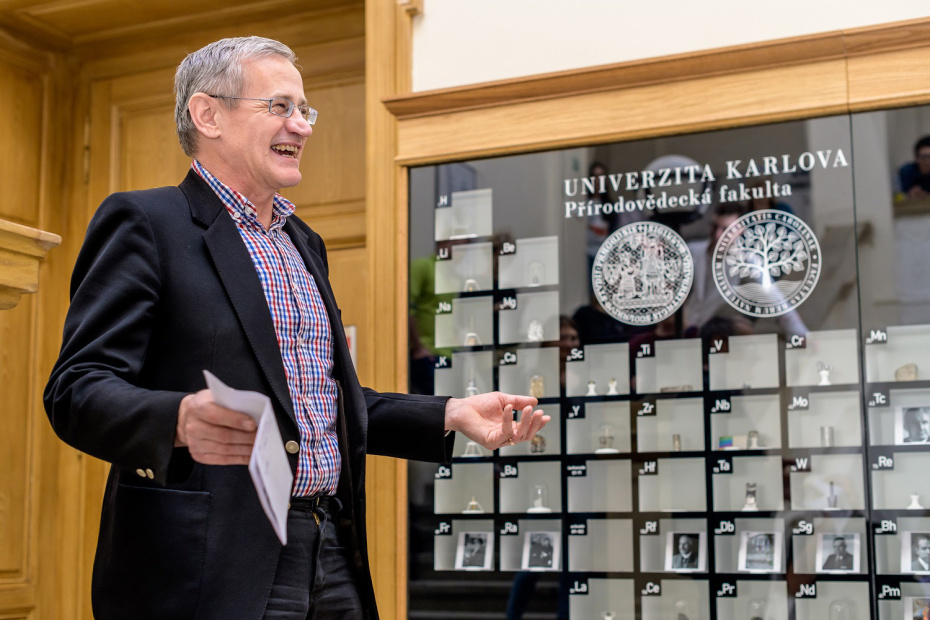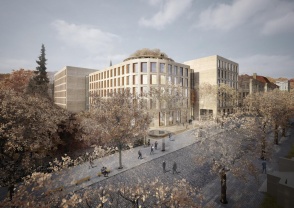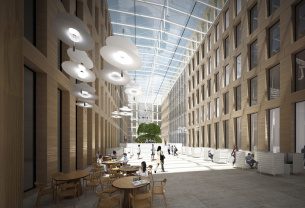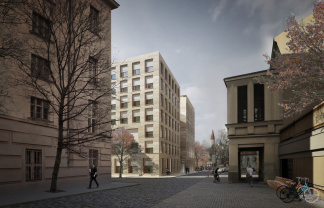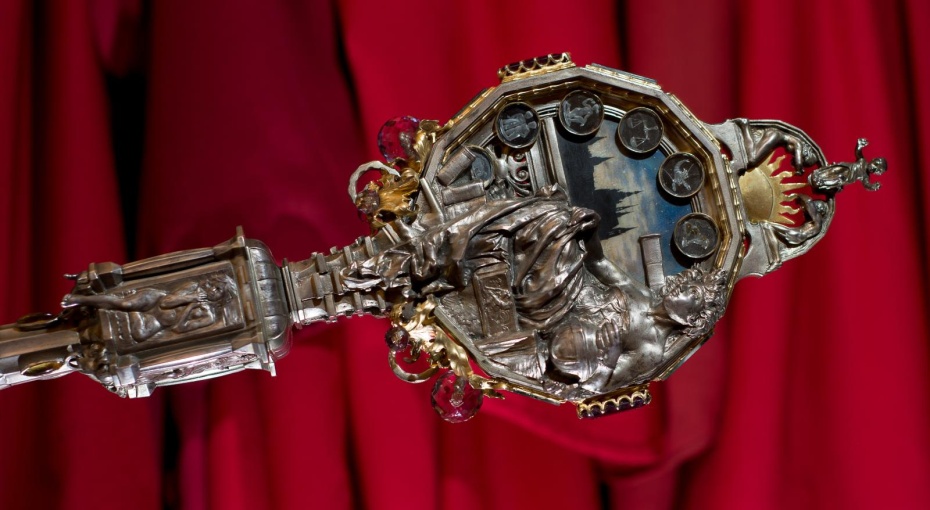Marcela Uhlíková • foto: Faculty of Science archives • 21 June 2020
“What better time to spread our wings?”
Dean Jiří Zima’s studies and career at CU’s Faculty of Science spans some 40 years, going from student to scientific researcher to assistant and professor. As dean, he has overseen numerous successes at what is one of the university’s biggest and most popular faculties. This week, the faculty will celebrate 100 years since it was founded on 24 June 1920.
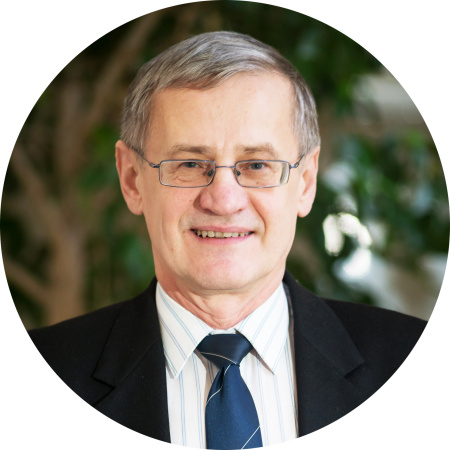 What is it like to head a 100-year-old faculty?
What is it like to head a 100-year-old faculty?
It’s good. Above all because you can’t tell its age. I was lucky to have become dean after colleagues who pushed the faculty further to reach greater heights. I would even say the faculty is still in its youth. Certainly compared to the university itself, which is 572 years older.
What is something that is satisfying about your job?
I am extremely grateful that I am able to work with a team of people who are on the same wavelength; even when difficult or contentious questions arise, we are able to solve them with constructive discussion and without arguing. That is very pleasing. I am in close contact with members of the Dean and Advisory board, members of the Academic Senate, the faculty’s Scientific Council, and due to teaching, also with students. I think I have a good overview of what is going on at the faculty and understand where attention is needed. Those are things that make me happy.
What has changed at the Faculty of Science since your days as a student?
I don’t remember how many students were enrolled 40 years ago but it’s safe to say there were fewer than today. Today, we have around 4,800 students. One thing that has certainly changed are students’ curricula: it’s hard to find two students with the same course load, discounting mandatory courses. Besides core courses, students can now choose from a rich offer of different subjects in various fields. I studied analytical chemistry: back then, all us studied the same courses for the first three years. It was only after that, that we branched out into individual areas in chemistry. Today, that doesn’t exist: a lot of our students begin to specialise right from the start.
What has changed at the Department of Chemistry? Is it also different?
The number of young people studying chemistry is higher than when I was a student. If there is less interest in studying chemistry as a whole, don’t forget that we are on the lower end of the demographic curve and also face what some see as a “healthy trend” where modern young students want to avoid chemistry at all costs. In this skewed picture, chemistry does not enjoy the best of reputations. But we adopted new strategies and offered programmes and options, from clinical and toxicological analysis to medicinal and material chemistry. We faced the problem head-on and chemistry is as important as ever, especially when you consider everything being analysed today: plastics, foodstuffs, water... There is so much that – as an analytical chemist – it is both pleasing and even a little frightening. That can’t be changed now but what we can do, is focus on making the world a better place. Even the coronavirus will pass… and we will return to other concerns.
If you were applying for university today, what would choose?
I was good in high school and as far as I remember didn’t have a problem with marks and good results were crucial to continue at university. I chose between medicine, biology and chemistry. If I could have applied at more schools, as is the case today, and who knows how things might have turned out. In those days, if you were rejected, it meant your two years of then-mandatory military service [in Czechoslovakia] were not deferred – or in a better case you would be able to apply a year later. The fact that I was accepted into chemistry is something I never regretted.
You have headed what is one of CU’s most successful faculties for a few years now; where do you see the faculty in the future?
Predictions are usually quite risky but the faculty’s future is of course closely tied to the new Campus Albertov. It’s a huge construction project which has been slowed a little by the coronavirus outbreak, but I believe it will move ahead as planned. I have been involved in the project since the start in 2006. I was vice-rector for development in 2011 when we received backing from the government that the project would move ahead. I can’t be sure what official capacity I’ll be in by the time the new facility is completed, but I certainly want to see it finished.
I will have no worries about the faculty once the project will be done and the facility’s doors opened. The Faculty of Science has been located in mostly the same location, the very same buildings, since its founding in 1920! 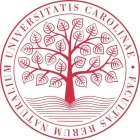 I see now as the perfect time for the faculty to spread its wings so that over the next 100 years students will be able to make use of new classrooms, laboratories and study halls that match advances in science today. If you take something like BIOCEV, some of our employees are enjoying the new modern facility, and while it is not at all near the main complex at Albertov, things will improve once the new metro D line is added.
I see now as the perfect time for the faculty to spread its wings so that over the next 100 years students will be able to make use of new classrooms, laboratories and study halls that match advances in science today. If you take something like BIOCEV, some of our employees are enjoying the new modern facility, and while it is not at all near the main complex at Albertov, things will improve once the new metro D line is added.
Do you ever have a chance to take your mind off of professional demands?
It’s essential but it can’t be for too long (smiles). I catch myself checking emails on Sunday in anticipation of the coming week and to deal with problems in advance so they don’t get out of hand. I used to relax by playing football but now am more of a spectator; in my free time I try and spend time with my grandchildren. But it’s true, I can’t ever fully take my mind off work. Even on vacation, I check back online to make sure there isn’t anything that needs my immediate attention.
It is not unusual for Faculty of Science students or graduates to get mentioned in the media and for good reason; that must be very rewarding.
Certainly. Over the last few years we clinched a number of prestigious ERC (European Research Council) grants. Three in a row were from biology and two from chemistry. That is of course excellent and all I hope is that we can maintain such a track record… I am also very happy with the Erasmus Programme enabling our students to study abroad and foreign students to study here. Erasmus teaches students to improve and actively use foreign languages. Studying abroad also broadens their horizons and critical thinking so they are not as likely to believe some of the nonsense out there sometimes presented as fact. Luckily today there are plenty of opportunities to study abroad, something that we fully support.
Translation from Czech by: Vel

